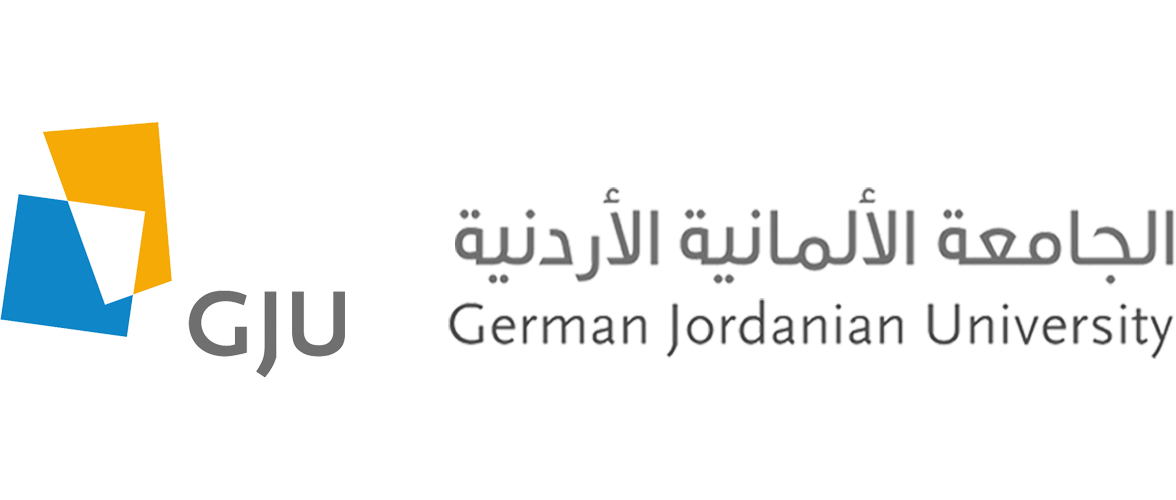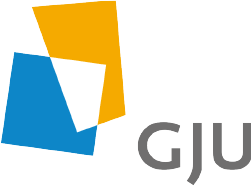Courses
Description of Courses offered by the Mechatronics Engineering Department
Note: For credit hours, contact hours, and lab hours please refer to your designated study plan
ME 111 Computer Aided Engineering Drawing:
The Use of computer aided software in drawing such as AutoCAD. Geometric constructions. Orthographic and Isometric projections; Sketching, sectioning, dimensioning and layering. Model Layout (wire-frame, surface, and solid modeling), plotting to scale, blocks and attributes, Introduction to descriptive geometry, perspective drawing. Engineering applications.
ME 211 Statics and Dynamics:
Basic concepts of mechanics, vectors. Statics of particles. Rigid bodies and force systems, equilibrium of rigid bodies. Analysis of trusses and frames. Distributed forces, centroids and moments of inertia. Friction. Internal shear and bending moments in beams. Kinematics of particles, rectilinear and curvilinear motion. Kinetics of particles, application to space mechanics. Energy and momentum methods. Systems of particles. Kinematics and kinetics of rigid bodies; planar motion.
ME 221 Thermodynamics:
Thermodynamics concepts and definition, properties and behavior of pure substances. Energy transfer by work. First and second laws of thermodynamics and entropy. Gas power cycles, vapor and combined power cycles, and refrigeration cycles.
ME 222 Fluid Mechanics:
Physical properties of fluids and fundamental concepts in fluid mechanics. Hydrostatics. Conservation laws for mass, momentum and energy. Flow similarity and dimensional analysis as applied to engineering problems in fluid mechanics. Laminar and turbulent flow. Engineering applications such as flow measurement, flow in pipes and fluid forces on moving bodies.
ME 322 Heat Transfer:
One dimensional conduction; steady and transient analysis. Introduction to convection heat transfer. Forced convection heat transfer in external flows. Radiation heat transfer; radiation properties, and radiation heat exchange between ideal surfaces.
ME 331 Electrical Machines
Principles of magnetic circuit concepts, transformers, DC machines, synchronous machines, induction machines, and special purpose machines. Introduce the principle of converting electrical energy to mechanical energy and vice versa via electromagnetic field. To introduce different machines, their operating principle and the analysis of key characteristics. To provide the basis for further study of electric machines.
ME 342 Instrumentation and Measurements:
Measurements with different micrometers & Vernier measuring instruments, angular measurements, roundness & concentricity of cylindrical work pieces, tool maker’s microscope, optical projectors, surface measurements. Analysis of experimental data and error estimation.
Basic electrical measurement and sensing devices: physics of electric, magnetic, chemical sensors Displacement, area, pressure, flow, temperature, thermal and transport properties, force, torque and strain measurements. Smart sensors and networking of sensor systems. Data acquisition and processing.
ME 343 Automatic Control Systems:
Modeling of electrical, pneumatic, hydraulic and mechanical systems, Transfer functions, block diagrams, and signal flow graph. Time domain analysis, test signals, transient response, steady state error and stability. Root locus, bode plots, PID control, phase-lead, phase lag. Software application such as Matlab and Simulink.
ME 361 Hydraulic and Pneumatic Systems
Pneumatic and hydraulic components: compressor, cooler, compressed-air containers, filters, valves, pumps, piping system basic circuits in pneumatics and hydraulics, design and simulation of pneumatic and hydraulic circuits, servo pneumatics and servo hydraulics, basics of servo drives, assembling, measuring techniques.
ME 451 Programmable Logic Controllers
Basic hardware configuration for a PLC system. Programming languages, Operation of a PLC, programming with statement list, ladder diagram, function chart, application for logic control, application for sequence control, simulation of discrete processes, advanced PLC programming, networking of different manufacturing processes, data communication, assembling, commissioning and configuring bus systems like Profibus, Ethernet, LAN networks, and process visualization (WinCC, InTouch), tele-diagnosis over internet, project.
ME 511 Machine Design
Analytical review of current design practices and specification of standard components encountered in mechanical engineering. Influence of stress-strength in determining the actual configuration of mechanical elements. Standard components covered include various types of mechanical drives, cams, clutches, couplings, brakes, seals, fasteners, springs, and bearings. Design of springs; design of gear and hydraulic drives, design for hydrodynamics and hydrostatic lubrication; optimum design of electro-mechanical systems, design strategy, value and merit function, maximizing and minimizing procedures.
ME 512 Machine Design Lab
Computer-aided design and assembly of electro-mechanical elements and machines. Project oriented lab.
ME 541 Real-Time Computer Control Systems
Review of continuous control. Dynamic response, Feedback properties, Root locus and frequency response designs. Introduction to digital control. Discrete system analysis. Difference equations, discrete transfer functions, z-transform, Discrete signal analysis. Discrete approximation of differential equations, Effects of Sampling, PID control in discrete systems. Sampled-data systems. Sample & Hold, Spectrum of sampled signals, Data extrapolation, Block diagram analysis. Discrete equivalences. Numerical integration, Pole & zero mapping, Hold equivalence. Design using transform techniques. Design by emulation, Design by root-locus, Design by frequency response. Implementation of Direct Digital Control algorithms. Implementation of the basic PID algorithm, Synchronization of the control loop, Timing Considerations in Implementation of Control Loops. Hard and soft real-time systems, Real-time scheduling theory, Deadlines in real-time control systems.
ME 543 Process Control
Dynamics of mechanical, food, beverage and chemical processes; system capacity; resistance; piping complexes; characteristics and dynamics of control valves; control of pressure, speed, PH, mixing ration, Boolean algebra and fluid logic, sequential circuits, process time constants; proportional, reset, and derivative control actions; feedforward and cascade control; direct digital control.
ME 544 Mechatronics of Food, Beverage and Petro-Chemical Process Systems
Introduction to food, beverage and petro-chemical industry: water, diary, snacks, processed canned food, plastics, petrochemicals, etc. process parameter control, packing, filling, material handling, packaging, Modeling, design and control of a food machines and production lines, developing manual to semi-manual or fully-automated process. Project-oriented with the Jordanian Industry.
ME 545 CNC and Manufacturing Control
Concepts and benefits of computer integrated manufacturing (CIM). Design for manufacturing. Computer-aided design, process planning, manufacturing (computer numerical control parts programming), and inspection. Robots in CIM. Production planning and scheduling in CIM. System integration.
ME 546 Linear Systems
Review of matrix algebra. State-space description of dynamic systems: linearity, causality, time invariance, linearization. Solution of state-space equations. Transfer function representation. Discrete-time models. Controllability and observability. Canonical forms and minimal-order realizations. Stability. Stabilizability and pole placement. Linear quadratic optimal control. Observer design.
ME 547 State Space Control and Observers
Pole placement design of both controllers and observers using Matlab. Regulator and servo design. Optimal design of controllers and observers. Quadratic Optimal Regulator Systems.
ME 552 Maintenance of Mechatronics systems
Assembly and commissioning of a mechatronic production line, troubleshooting of a mechatronic production system, tele-services, software application, safety test procedures and quality control management, interpretation of commissioning protocols, error documentation, corrective maintenance, debugging procedure, error analysis, error correction, fault clearance, preventive maintenance, inspection test of wear, fatigue, maintenance planning, maintenance of sensors, actuators, control panel and controllers, PLC's.
ME 553 Mobile Robots
To introduce variety of autonomous mobile robots, but concentrate on wheeled robots. In particular students will build, experiment with and compete with the mini-mobile robots. Topics to be covered include robot platforms & modelling, control structures, sensing & estimation, localization, motion planning and multi-robot systems.
ME 555 Machine Intelligence
The objective of this course is to introduce the students to current intelligent system concepts. An overview of different learning schemes will be provided, including: Decision Tree, Bayesian, Inductive, Analytical and Rule-based Learning. The main focus of the course will be on Neural Nets, Genetic Algorithms and Reinforcement Learning, adaptive control.
ME 561 Mechatronics Systems Design and Integration
Design and planning of the system, purchase (virtual) of different components, sensors and actuator units, machine parts, devices, electric, mechanical, pneumatic, hydraulic components, PLC and control units, assembly, commissioning, interfacing, software and programming, calibration, standard checks, test operation, troubleshooting, documentation, service and maintenance, safety, cost, delivery and disassembly and packing.
ME 562 Nano Systems
Assembly, manipulation and control of materials at the atomic and molecular scale to fabricate structures, devices and systems that have novel properties and functionality.
ME 563 Mechatronics of Computer Hard Disk
Computer hardware architecture, components of the computer hard disk drive, mechanism of the hard disk, modelling of the hard disk slider, control of the slider actuator, modelling of aerodynamics and contact forces, friction forces, and input forces, real-time control of slider Motion.
ME 564 Mechatronics of Smart Materials
Properties of smart materials, classes of smart materials, Shape memory alloy materials, piezoelectric materials, smart sensors, smart actuators, mechatronics of smart materials: modelling, design, digital control, and their applications.
ME 565 Micro-Electro-Mechanical Systems (MEMS)
Introduction to micro machining processes; mechanical properties of materials used in micro mechanical systems; design and fabrication of free standing structures; sacrificial and structural layers; finite element modelling; micro mechanical components; solid lubrication of micro bearings; special techniques: double-side lithography, anodic bonding, electro-chemical drilling, deep etching, LIGA process, laser micro fabrication; influence of IC fabrication processes on the mechanical properties; applications in micro devices; simulation and packaging.

